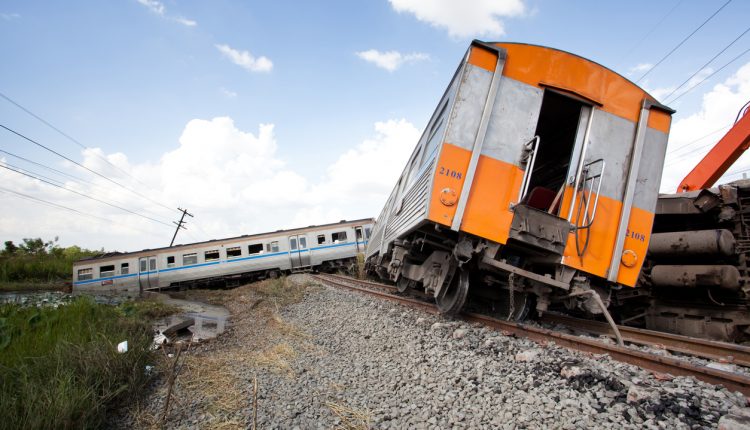What Legalities Are Involved in a Train Collision?
Though rare in comparison to road accidents, collisions involving trains are far from uncommon. What are the legal consequences of these incidents?
Train accidents happen much more often than most people think. According to the Federal Railroad Administration (FRA), about 3,000 train accidents happen yearly in the US. From these accidents, there have been almost a thousand deaths. What sets train accidents apart from car accidents is that trains are used to transport many more people at very high speeds. In order to understand train accidents better, we first need to understand what exactly causes them.
Mechanical Or Electrical Failures
Like all vehicles, trains are composed of hundreds of parts. Like any piece of technology, these parts experience wear and tear, and the failure of any of these components could cause the train to behave in an erratic fashion. Many component failures could lead to a loss of control of the train.
Track Defects
Another cause for accidents can be track defects, or a misalignment of the rails. Trains travel on these rails and they’re just as important as the train itself. Remember that trains travel at very high speeds and the slightest bump or the smallest misalignment could cause a derailment.
Human Error
Finally, we have human error as a cause, which occurs when personnel fail to observe standard safety protocols and fail to execute proper operating procedures. Depending on the cause of the error, different parties can be held liable for the accident, whether it’s the train company, the parts manufacturer, or the operators.
What are the Legalities Involved In Train Accidents?
The first thing to consider in this type of accident is that governing federal laws will take precedence over state laws. The FRA is the overseeing body that creates, regulates, and enforces railroad safety protocols. These protocols include operator licensing, equipment specifications, and the actual transportation procedures. Determining liability in a train accident case is as simple as proving that the train company or the personnel failed to adhere to the regulations set by the FRA. This will almost always become the basis to establish liability.
However, it should also be noted that not all train accidents share the same circumstances. There will be instances when the accident is a result of a combination of errors rather than the error of a single party.
While victims will almost always have a claim against the train operator and the railway owner, if it is discovered that the accident was also caused by a defective train, then the train manufacturer or the manufacturer of that particular part may be sued via state product laws. It’s due to these complexities that it’s important to always hire a train injury lawyer to help claimants secure the full and fair compensation that they are entitled to. This also means that injured railway workers can file a claim in addition to state workers’ compensation programs.




